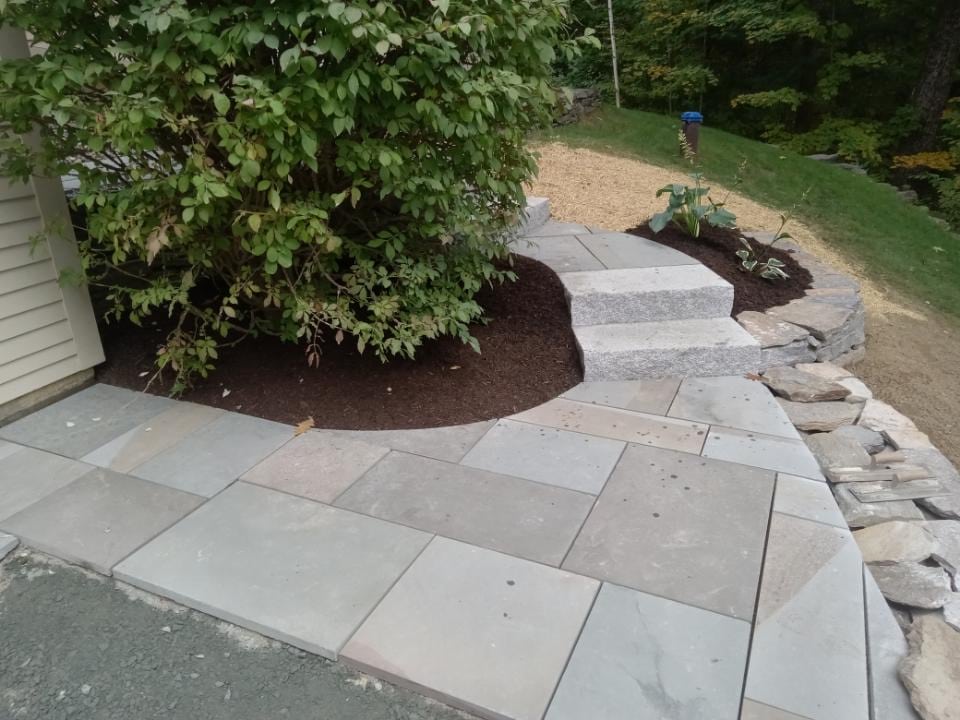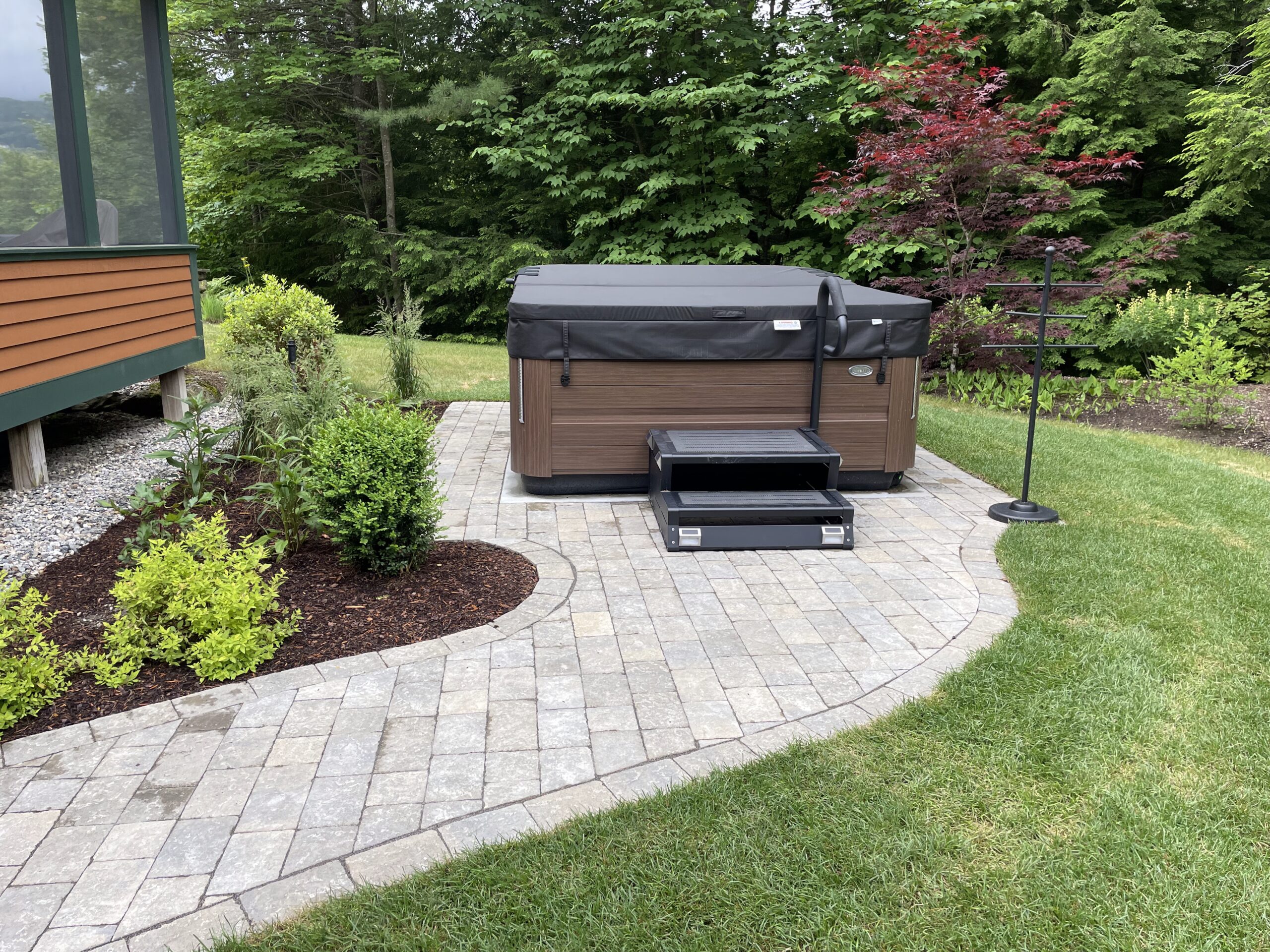
What to Know Before Hiring a Walkway Builder
Hiring the right walkway builder is essential to ensure your outdoor project is both durable and visually appealing. Homeowners in New Hampshire looking to enhance curb appeal and improve functionality need to understand project design, jcb designscapes, budget planning, and contractor evaluation. This article outlines key factors to consider before hiring a walkway builder so you can achieve a successful installation with quality materials, professional workmanship, and guidance from asla. Read on to learn what to expect, how to evaluate experts, and the preparations needed for a smooth construction process – if you have any questions, contact us.
Key Takeaways
- A clear project scope and design plan is crucial for guiding contractor selection and material choices.
- Research through referrals, online reviews, and portfolios ensures finding an experienced builder.
- Understanding estimates, contract terms, and handling changes minimizes misunderstandings.
- Proper preparation of your property and awareness of post-installation care lead to lasting satisfaction.
- Asking the right questions ensures your builder meets all requirements for a quality walkway.
Defining Your Walkway Project Scope and Design

Clarify your walkway’s purpose and functionality by outlining what the path should achieve, such as improved access or enhanced aesthetics. Homeowners must select materials that offer durability and beauty, whether bluestone, slate, or decorative concrete. Sketch a basic layout or gather inspirational designs to discuss ideas with your contractor. Determining your budget upfront helps narrow down choices and ensures the project remains financially feasible. Additionally, understanding local zoning laws and permit requirements prevents any construction delays. This planning phase sets a solid foundation for the ensuing construction process, ensuring that the walkway meets both practical and visual demands.
Clarify Your Walkway‘s Purpose and Functionality
Determine whether the walkway is meant for everyday use, to enhance curb appeal, or to serve as a decorative element. Clearly defined objectives guide the design and materials.
Select Appropriate Walkway Materials for Durability and Aesthetics
Choose materials like cobblestone, stamped concrete, or brick that combine strength with visual appeal. Consider factors like maintenance and the local climate.
Sketch a Basic Layout or Gather Inspirational Walkway Designs
Prepare sketches or obtain design ideas from magazines and websites. This helps communicate your vision to the walkway builder.
Determine Your Budget for the Walkway Installation
Establish a realistic budget that covers materials, labor, and any unexpected expenses. A firm budget keeps the project focused and efficient.
Understand Local Zoning and Permit Requirements for Walkways
Investigate local codes to ensure compliance. Permits may be necessary and can affect project timelines.
Locating and Assessing Walkway Builders Near You

Finding a qualified walkway builder starts with gathering referrals from friends or neighbors who have completed similar projects. Use online directories to search for contractors in your area and review the portfolios of previous projects to get a sense of craftsmanship. Verifying licensing, credentials, and insurance is critical to protect against potential liabilities. Reading online reviews and testimonials also helps gauge customer satisfaction and the contractor’s reliability. This process allows homeowners to select a builder who aligns with their vision and budget, ensuring that the final walkway installation meets high standards.
Request Referrals From Friends or Neighbors for Local Walkway Specialists
Word-of-mouth recommendations are invaluable. They offer genuine insights into workmanship and reliability.
Utilize Online Directories to Find Nearby Walkway Construction Experts
Online searches will reveal contractors with high ratings and positive feedback from other homeowners.
Review Portfolios of Previous Walkway Projects
Examine project galleries where builders showcase completed walkways using materials like bluestone or decorative concrete.
Verify Credentials Licensing and Insurance of Potential Builders
Ensure your builder is licensed and carries proper insurance, which protects you in case of any construction mishaps.
Read Online Reviews and Testimonials for Walkway Contractors
Assess customer reviews to understand the contractor’s performance, reliability, and cost-effectiveness.
Evaluating Estimates and Understanding Contract Terms From Walkway Builders
Obtaining multiple detailed quotes is essential for comparing the scope of work, materials, and timelines offered by different contractors. Scrutinize payment schedules and warranty details to ensure fair and transparent terms. Confirm that all agreed-upon details are documented in a written contract to avoid future disputes. Understanding how changes or unexpected issues will be handled protects you from surprises during construction. A clear, comprehensive contract sets mutual expectations and provides a solid reference for both parties throughout the project.
Obtain Multiple Detailed Quotes From Different Walkway Professionals
Gather several quotations to understand pricing differences and service inclusions.
Compare Scope of Work Materials and Timelines in Each Proposal
Analyze each quote for material quality, project duration, and the detailed work to be performed.
Scrutinize Payment Schedules and Warranty Details
Review when payments are due and what warranties cover the materials and workmanship.
Confirm All Agreed Terms Are Documented in the Written Contract
Ensure every discussed point is captured in a formal contract to minimize misunderstandings.
Understand the Process for Handling Changes or Unexpected Issues
Discuss how adjustments will be managed should unforeseen challenges arise during construction.
Essential Questions to Pose to Prospective Walkway Installation Companies
When consulting with potential builders, ask about their specific experience with similar walkway projects. Inquire about the team that will oversee the build and the project management process to ensure clear communication throughout the project. Clarify their approach to site preparation and cleanup, as well as their timeline for project completion. These questions will help you gauge the contractor’s competency and reliability, ensuring that they can deliver high-quality workmanship within the expected time frame.
Inquire About Their Experience With Similar Walkway Projects
Discuss past projects and request examples similar in scope and material choices to your envisioned walkway.
Ask About Their Team and Who Will Oversee the Walkway Build
Understand the roles of team members and who to contact for updates or issues.
Request Information on Their Project Management and Communication Practices
Ensure that there will be regular updates, clear timelines, and seamless communication during construction.
Clarify Their Approach to Site Preparation and Cleanup
Ask how the builder protects existing landscaping and manages waste during and after construction.
Seek to Understand Their Timeline for Completing Your Walkway
Confirm estimated start and finish dates, ensuring the contractor can meet your schedule.
Preparing Your Property Before the Walkway Construction Begins
Preparation of your property minimizes delays and ensures the builder can work efficiently. Clear the proposed walkway path of any obstructions like debris or garden items. Mark utility lines to prevent accidental damage during excavation or foundation work. Discuss access points with your builder to ensure that materials and equipment can reach the worksite without difficulty. Protect surrounding landscaping and structures by moving any fragile items or installing temporary barriers. Inform neighbors about the project to manage expectations regarding noise and increased traffic. Taking these preparatory steps will lead to a smoother construction process and help preserve the value and appeal of your property.
Clear the Proposed Walkway Path of Obstructions
Remove debris and non-permanent fixtures to provide an open space for construction.
Mark Utility Lines to Prevent Damage During Construction
Contact utility companies to identify underground lines that could be damaged during the build.
Discuss Access Points for Materials and Equipment With Your Builder
Plan entry and exit routes for heavy machinery to avoid unnecessary disruption or damage.
Protect Surrounding Landscaping and Structures
Cover delicate plants and secure nearby structures to prevent accidental harm.
Inform Your Neighbors About the Upcoming Walkway Project
Providing advance notice helps mitigate concerns and ensures communal understanding during the project.
Understanding the Walkway Building Process and Post-Installation Care
Understanding each stage of the walkway building process—from initial excavation to final installation—ensures you know what to expect. Maintaining open communication with your builder throughout the process allows for timely resolution of any issues. After installation, conduct a thorough final walkthrough and inspection to ensure that all work meets agreed standards. Request maintenance guidelines to care for your new walkway, including cleaning tips and any periodic repair recommendations. Address final payments and documentation details promptly to conclude the project satisfactorily, ensuring long-term durability and performance.
Familiarize Yourself With Each Stage of Walkway Construction
Learn how the builder moves from design and planning through installation, which helps manage expectations.
Maintain Open Communication With Your Chosen Walkway Builder
Regular updates during construction help identify and resolve issues early.
Conduct a Final Walkthrough and Inspection of the Completed Walkway
Inspect materials, workmanship, and overall finish before signing off on the project.
Obtain Maintenance Guidelines for Your New Walkway
Receive detailed care instructions to prolong the walkway’s appearance and functionality.
Address Any Final Payments and Documentation With the Builder
Finalize payment and ensure all paperwork is complete to secure warranty and service agreements.
Final Thoughts
Hiring a professional walkway builder requires thorough planning, detailed research, and clear communication. Homeowners should always start by defining their project scope and design while understanding local regulations. With multiple detailed quotes, careful contract review, and essential questions addressed, you can confidently select a builder who meets your standards. Ensure your property is well-prepared for construction and that you fully understand the post-installation care. This ensures a durable, aesthetically pleasing walkway that enhances your home’s curb appeal while aligning with your budget.
Frequently Asked Questions
Q: How do I determine my walkway project’s scope?
A: Begin by outlining the purpose, functionality, and desired aesthetics. Consider the type of materials that best suit your design vision and budget.
Q: What should I look for in a contractor’s portfolio?
A: Look for completed projects that closely match your design and material preferences. Check for quality craftsmanship and durable installations.
Q: How important is it to verify a builder’s licensing and insurance?
A: Extremely important. Verification protects you from liability and ensures the builder meets industry standards.
Q: What are common payment terms in walkway contracts?
A: Payment terms typically include milestones tied to project stages and a final payment upon successful completion and inspection.
Q: How can I prepare my property for walkway construction?
A: Clear obstructions, mark utility lines, secure access for equipment, protect landscaping, and inform neighbors in advance.
